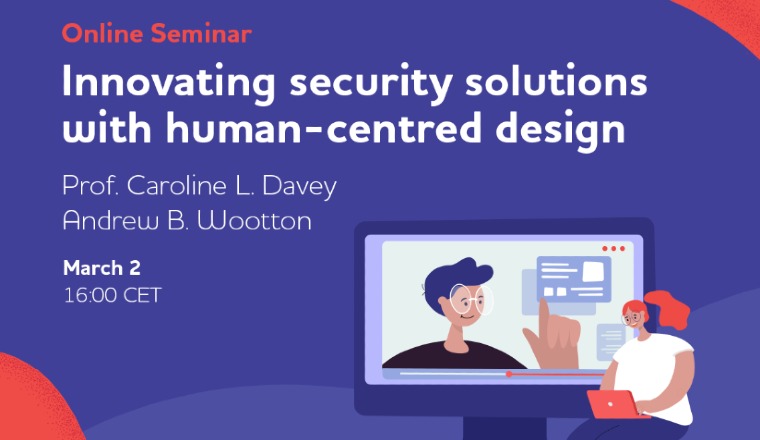CCI-Prävinar #5: Cutting Crime Impact – On the trail of citizens’ feelings of insecurity
Abstract
Prof Dr Jan Üblacker will open the webinar with an urban sociological perspective: “Starting from a vacuum created by restructuring police authorities and their areas of responsibility, many major German cities established or expanded municipal public order services, which resemble the appearance of state police forces, but have different tasks, competences, and resources. As their practical orientation is influenced much more by local politics, public opinion and spatial distribution of disorder, questions arise on how these city-specific cultures of control are related to neighbourhood change.”
Afterwards Melanie Schlüter and Dr Anke Schröder will present INSIGHT, a tool which delves into subjective safety and security. Factors like public opinion or the spatial distribution of disorder in a neighborhood affect the perception of safety of citizens and create complex challenges for state and municipal actors. Subjective security in urban spaces requires knowledge about the emergence and effects of fear of crime and about the design and use of public space. Results are prepared for implementation in such a way that these can be used by crime prevention practitioners. Within the context of the international EU project Cutting Crime Impact (CCI), the INSIGHT tool was developed to enable these actors to measure and - if possible - mitigate citizens' feelings of insecurity and fear of crime. Following the human-centered design approach, the tool is intended to provide a holistic, spatial and systematic process for measuring perceptions of (in)security and focuses on the perspective and demands of the users.
Speakers



Recording
Downloads
CCI Webinar #9: The ProMIS Tool: Project Monitoring & Impact Support for CP-UDP
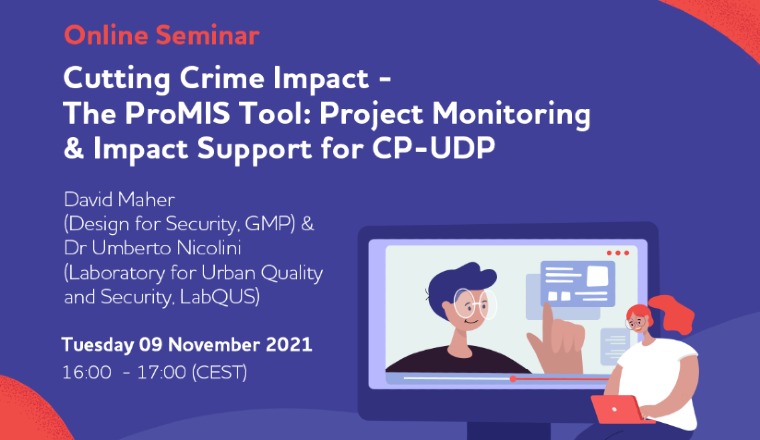
CCI-Prävinar #8: CP-UDP in Estonia: Building Safer Cities Together
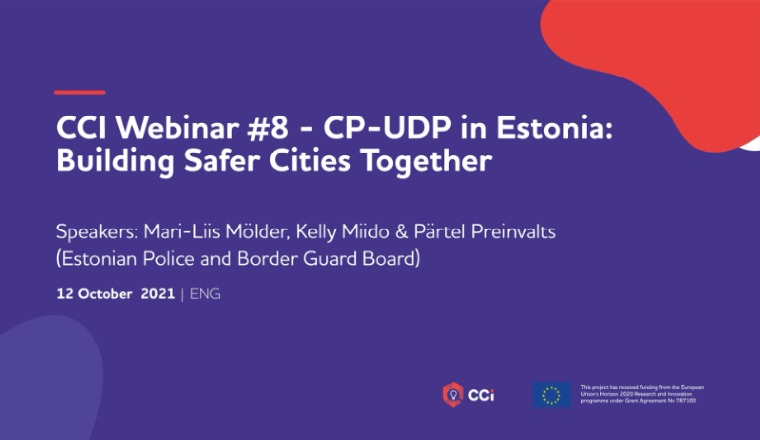
CCI-Prävinar #7: Cutting Crime Impact — The Dutch touch: a problem-oriented approach to High Impact Crime (ProHIC)
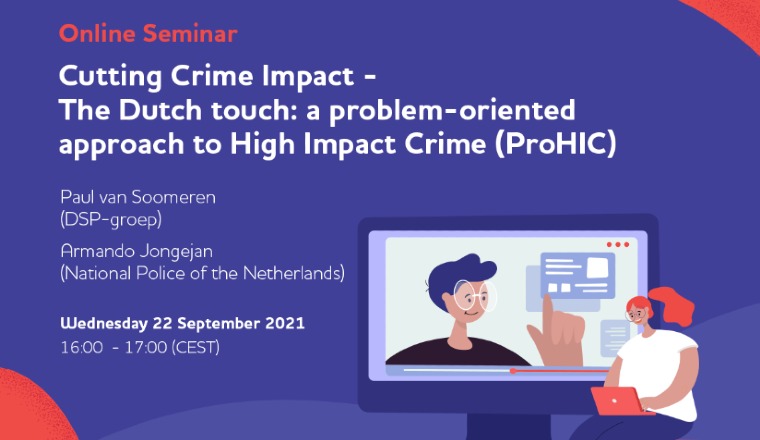
CCI-Prävinar #6: Cutting Crime Impact — Police analysis and communication tool to support effective information-enhanced patrolling
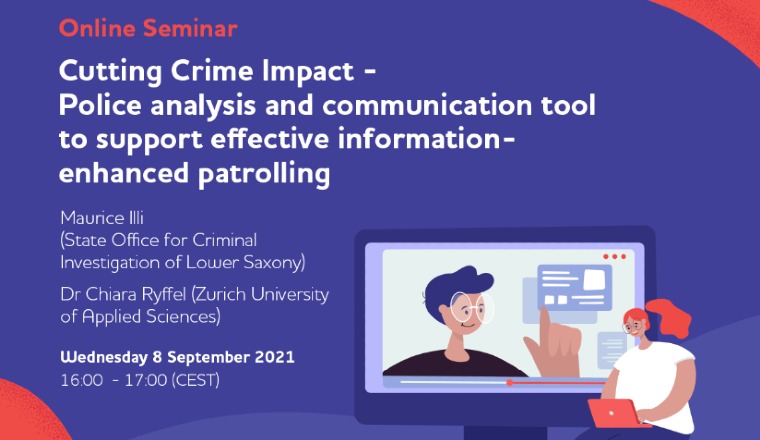
CCI-Prävinar #5: Cutting Crime Impact – On the trail of citizens’ feelings of insecurity
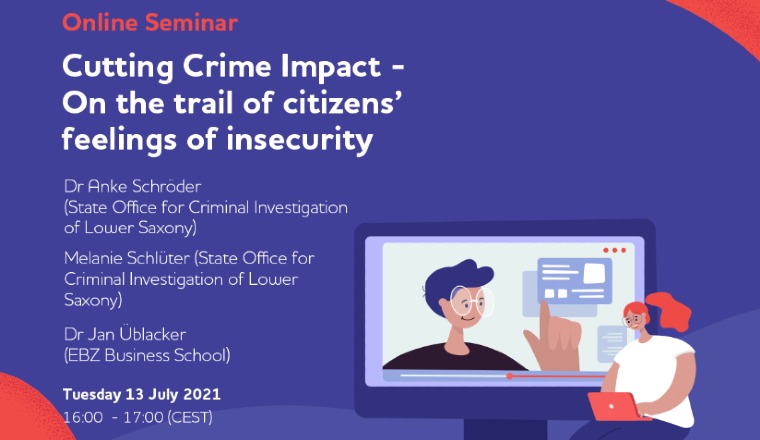
CCI-Prävinar #4: Cutting Crime Impact – Addressing Citizens' Feelings of Insecurity
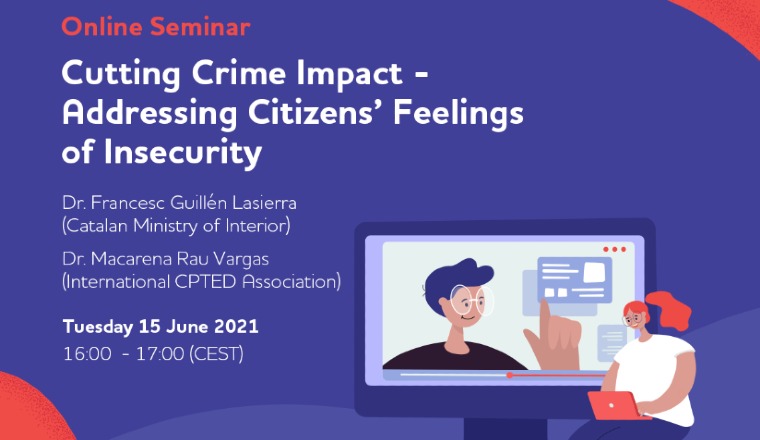
CCI-Prävinar #3: Cutting Crime Impact – Making the Case for a Community Policing Approach: Lessons from Lisbon Model
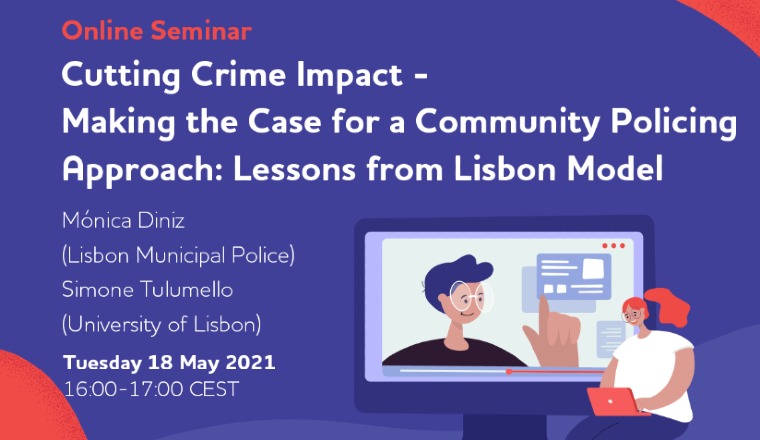
CCI-Prävinar #2: Cutting Crime Impact - Promoting continuity in Neighbourhood Policing through human-centred design
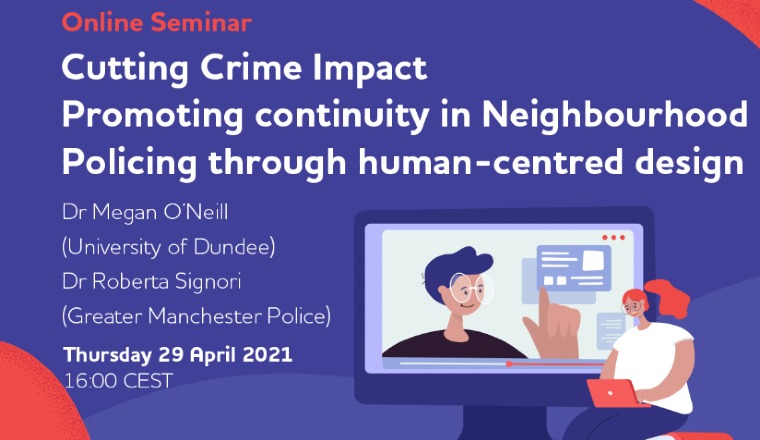
CCI-Prävinar #1: Cutting Crime Impact - Innovating security solutions with human-centred design
